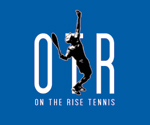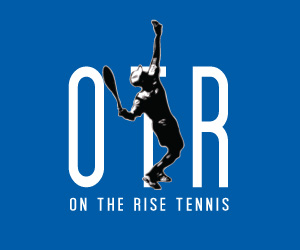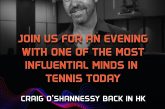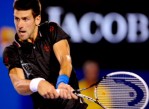Happy has been a visitor to Hong Kong in the past giving OTR players a fresh new insight to concentration and mental toughness.
Coaches extol the virtues of it and argue that without it success is impossible; players will do anything to develop it….but what exactly is ‘killer instinct’?
It seems to be the ability to close out matches when one is in a ‘winning’ position; the ability to finish off a point or an opponent when the opportunity presents itself. Are we agreed on this definition?
If we are, the first ‘problem’ to consider is that in sports in general and tennis in particular is there such a thing as a winning position? Tennis is different from many other sports in the sense that you cannot play negatively and wait for the clock to wind down. You have to find a way to actively win points right the way through until the match is over. Consequently, a few games away from victory may seem like a sure thing, but those few games still need to be won. Certainly, it seems like you can be in an advantageous position, but any such terminology sets a trap for players that ultimately raises expectations and activates the mind thereby preventing us from playing our best tennis.
In tennis the score is usually indicative of the level of our own performance as it relates to the level of our opponent’s performance. Consequently, if a player is leading 5-2 in the deciding set of a match that score is reflective of his and his opponent’s play up to that point. It says nothing to what is going to happen in the next few games.
Unfortunately, players who are thus leading develop an ‘expectation’ that because they are 5-2 up, they ‘should’ win this match. This type of thinking is at the very root of the problem. Let us briefly examine the words I have highlighted.
What is an expectation? It is an assumption I make based on past experiences. However, we need to understand that past experiences are unrelated to what is going to happen next. At the root of this misunderstanding is the belief among tennis players and coaches that time in sports is linear; and it is absolutely not (please refer back to my article on Momentum). There is no connection between the last point and the next. There is no connection between the last game and the next or the last set and the next. In other words, I may play an extremely poor set for a variety of reasons (many connected to being mentally disconnected), but in the next set, if I can find my center, I can play a completely different level of tennis.
So our expectations are based on a conscious or unconscious belief that there is something in tennis called momentum. It does certainly appear that there is momentum during the course of a match, but closer inspection reveals that it has no independent quality; it is a self-created phenomenon. The bridge from one moment to the next is created by the mind, but the key point to understand is that the mind is creating something that does not really exist in the physical world. The bridge that connects one moment to the next simply disappears if we are present to each moment because it was never really there in the first place.
The other word that needs to be examined is this ‘should’ word. What does it mean? ‘Should’ is different from ‘is’. ‘Is’ is real and that is the way things are and ‘should’ is the way we want things to be or ‘expect’ things to be. We need to drop the ‘should’ word because it has no basis in reality. It is at the root of many of the false beliefs we hold both consciously and unconsciously and it influences our life in a negative way by preventing us from performing at our peak athletic potential on each and every point that we play.
Reality is never positive or negative; it simply is the way it is. Everything else is just a story created by the mind and the mind has tremendous capacity to create fiction. This fiction, if we buy into it, has a powerful ability to affect our life adversely. It pushes us off center and prevents us from reaching our potential, both athletic and otherwise.
Players need to examine the traditional competitive ‘beliefs’ that they have been fed and subsequently adopted, with an open mind. Concepts we have heard for years and everyone accepts as the solemn truth need to be carefully examined. Hidden behind many of these absolutes are falsities that perpetuate a mind-set that makes peak athletic performance extremely difficult.
Ultimately though, it is not about replacing one belief with another, but dropping them all; this alone will allow players to play to their full potential each and every point.
Tactics may vary from point to point, but the centeredness, focus and commitment that a player brings to each and every point need not. This is what it means to be present. If we are present every time we step on to the line to serve or are waiting to receive a serve, we will give ourselves the greatest opportunity to play our best tennis. This is regardless of the score. We can be up 6-0; 5-0 and if our inner preparation, commitment and focus is exactly the same as when we are down 0-6; 0-5; namely centered by being both alert and relaxed, then we will play the best tennis we are capable of playing. How many players can claim that to be their experience?
Of course these are two extremes, but the same holds true at any juncture of a match because the reality is that it is never over until it is over. Expectations cause the mind to be active and take us out of the present moment and it is only in the present moment that peak athletic performance can happen.
Another big problem with buying into the need to develop a ‘killer-instinct’ is that it implies that a player needs to do something different, even extra, at the final stages of a match in order to win. Is this true? If I have built a ‘winning’ position by playing a certain way, why do I need to do anything different at the end of the match?
Of course, we need to keep in mind that being successful in competitive tennis requires players to constantly adjust to the subtle changes that our opponent may make during the course of a match or a point. This is happening throughout the course of a match and could certainly happen in the final stages of a match also.
Unfortunately, players play the score and this invariably leads to problems. This inner dialogue allows them to vacillate between throwing caution to the wind and playing freely when they are down because defeat is imminent anyway; to becoming overly cautious and hoping our opponent makes mistakes when we are winning.
Consequently, coaches or players who buy into the concept of developing a ‘killer-instinct’ are unconsciously laying the roots of mental weakness during competitive match-play in two separate ways. One, they are strengthening the false belief that ‘expectations’ are real and that the ‘should’ word has some basis in reality, and this is simply not true; and two, they are encouraging the player to tactically play the score instead of the particular physical situation they find themselves in.






